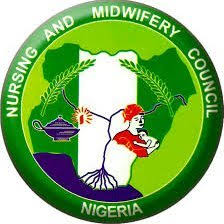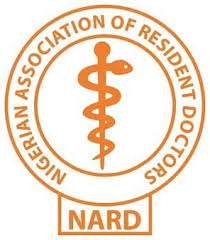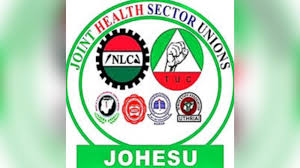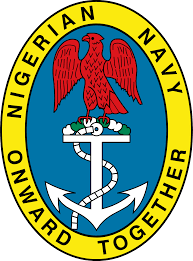COMMUNIQUE OF THE 93RD ANNUAL NATIONAL CONFERENCE OF THE PHARMACEUTICAL SOCIETY OF NIGERIA (PSN) TAGGED “OMLUABI 2020” HELD AT THE DE-DISTINGUISHED EVENT CENTRE, OSOGBO-IWO ROAD, OSOGBO, FROM 9TH TO 14TH NOVEMBER, 2020
PREAMBLE
Our dear country, Nigeria, is currently experiencing some volatility, uncertainties, complexities, and ambiguity, and this is all the more compounded by the ongoing threat of the global pandemic. This i$ despite the noteworthy effort of government, and healthcare workers around the country who are working tirelessly to ensure the general public has some reprieve and the economy can rebound First among equals. pharmacists around the country have remained resourceful, fighting arm-in-arm with the entire health workforce to put an end to this global pandemic.
Pharmacists in Nigeria have contributed immensely to the national public health response through personal and public sacrifice. As essential service providers, we have remained resolutely available in all communities and service delivery points to serve patients with our expert knowledge of infection prevention and control protocols Pharmacists, during the active phase of the lockdown, continued providing needed medications, pharmaceutical care services to bridge public health service disruption, consumables required for personal care and clinical use, maintained judicious use of essential medicines even when there was a disruption of global supply chains for raw materials and finished products. Needless to say, Nigeria was one of a few countries in which the actions of producers who stopped the export of critical medicines was least felt, as our local manufacturers and Supply Chain experts provided support to ensure the continued availability of quality medicines locally. This could not also have been achieved without the support and action of the regulatory agencies, NAFDAC and PCN.
Pharmacists adopted many strategies to ensure continued service provision to their communities and to assure good quality of life for all It is worthy of note that during the lockdown, innovations in pharmaceutical research and development, pharmaceutical supply chain, innovative care delivery, and care partnerships were deployed by pharmacists around the country. There were new care models that were explored to ensure continued care for and confidential communication with patients despite the limitations of infrastructure and government support to the sector.
The foregoing and other critical considerations informed the theme of the 93rdAnnual National Conference of the PSN in 2020 'TECHNOLOGICAL REVOLUTION: "Adaptation in Pharmaceutical Manufacturing, Pharmacy Practice and Regulation"
The conference was declared open by His Excellency. Mr Adegboyega Oyetola, the ExecutiveGovernor, Osun State. Nigeria. Other dignitaries who participated at the conference included His Excellency, the Deputy Governor of Osun State, Mr. Benedict Olugboyega Alabi Hon. Minister of Health. Dr Osagie Ehanire, ably represented by the Chief Medical Director. University College Hospital lbadan. Prof Jesse Abiodun Otegbayo. Dr Obi Adigwe, DS NIPRID. DG SON, Pharm Farouk A Salim, NMA President Prof Ujah who was represented by NMA VP Prof Rasaaq Ayodele Adebayo: APBN President- Surveyor Akin Oyegbola; NUAHP President- Dr. Ogbonna, President of Nigerian Association of Pharmacists and Pharmaceutical Scientists in the Americas (NAPPSA), Anthony Ikeme, PhD (in virtual assembly), NAFDAC DG came in virtually. Past Presidents of the Pharmaceutical Society of Nigeria (PSN) including Pharm. Mohammed Yaro Budah. mni, FPSN, FPCPharm. FNAPharm, Pharm. (Dr.) U. N. O. Uwaga. mni, FPSN, FPCPharm, FNAPharm, FNIM, Pharm. Azubike Okwor, FPSN, FNAPharm, FNIMand Pharm. Olumide Akintayo, FPSN, FPCPharm, FNAPharm FNIM, Director of Food and Drugs. Federal Ministry of Health, represented by the immediate past Director, Pharm, Mashood Lawal, FPSN; Registrar, Pharmacists Council of Nigeria (PCN); Pharm Dr Elijah Mohammed, PhD, FPSN, FPCPharm, FNAPharm. FNIM, ably represented by Deputy Director of Pharmacy Practice, Dr Peter Ilya Ndirpaya; the Royal Father of the day, Kabiyesi, the Ooni of Ile, Oba Adeyeye Entan Ogunwusi, Ojaja II, and HRM, the Akire of lkireland, Pharmacist Oba Olatunde Falabi, Lambeloye III FPSN; PQM Chief of Party, United States Pharmacopoeia; Dr. Mopa Esuga, and other Captains of Industry.
The keynote address was delivered by Pharmacist Professor Charles Esimone, FPSNVice-Chancellor, Nnamdi Azikiwe University, Awka. Other eminent resource persons also made tremendous impact through presentations at the conference.
CONFERENCE RECOMMENDATIONS
The conference deliberated on the theme and sub-themes of the Conference and other contemporary issues influencing the pharmaceutical industry and its contributions to national development and made the following observations and recommendations:
- Conference received with acclaim the news of the Federal Government's response to the global pandemic and the successes achieved so far. Conference also called for more involvement of pharmacists at the policy formulation and decision-making levels of public health, as the response so far has lacked a cohesive policy utilizing the pharmacy workforce available within communities, in public health, in academia/ research and those in hospital settings.
- Conference also received gladly the news of the Healthcare Intervention Fund set up by the Central Bank of Nigeria. The fund was set up to provide working capital loans, as well as term loans to support research, expansion and other activities. Conference, however, continued its call on the CBN to increase the moratorium or reduce the interest rate of the fund as this would further de-risk investments into the sector, leading to more capital inflows, increased manufacturing/ distribution capacity, and reduce health inequities in the country (SOG3). Conference also called on the CBN to expand loan instruments to pharmaceutical service delivery components to ensure last-mile delivery to consumers of health within communities.
- Conference noted that there is a correlation between technology advancement and economic development, as seen in countries such as the United States, Japan. Germany, United Kingdom and others. Furthermore, conference notes with dismay the continued economic woes and the current recession in which Nigerian people are enmeshed. Conference, therefore, called on the Federal Government to adopt expansionary fiscal policies that will stimulate investment in technology, ensure youth employment, increase investment in education (especially in Science, Technology, Engineering, Mathematics and Health Sciences), and increase investment in health (through increased coverage of health insurance, increased funding to Basic Healthcare Provision Fund. strengthening of the primary healthcare service and integration of community pharmacies into primary healthcare service provision).
- Conference also noted with dismay the security crisis around the country. Calling for solutions, conference noted that technology adoption has been the hallmark of countries like China with adequate security, due to investments in technology and intelligence gathering Conference therefore called for more cooperation between the police and the communities they serve, noting that healthy policing is a community effort. Conference received with sadness the news of several pharmacy practices that were looted, and razed down during the recent unrest, and extended its deepest sympathies and prayers to the affected members.
- Conference noted unequivocally that innovation is required if Nigeria is to continue making progress towards achieving sustainable access to essential medicines, critical vaccines and pharmaceutical workforce (SDG3) as stipulated in the framework for Universal Health Access. Rather than the dl-advised substitution of skilled workforce in health, conference called for the utilisation of technology in improving the quality and number of heal thcare professionals, especially pharmacists being trained in our Universities. Continued decimation of pharmacy workforce through privatisation of pharmacy departments in public facilities, concessions and other profiteering means were frowned upon as this will worsen equitable access to priority medicines, pharmacist professionals and result in poor health outcomes in the general population.
- Conference admonished pharmaceutical manufacturers, stakeholders. and educators to commit to defining a local strategy for Artificial Intelligence (Al) and machine learning in pharmaceutical manufacturing, regulation, service provision, education and development. Conference called on government and all stakeholders to commit to a single strategy to forestall duplicity of efforts and waste of scarce resources. Similar strategies have seen many countries screen vaccine candidates that would require thousands of man-hours that a country like Nigeria does not have. Therefore, conference notes, this is the time to leapfrog, joining the world in the fourth industrial revolution. Conference, in particular, insist that the opportunity in this global pandemic must not be wasted, as it presents a unique opportunity for talent acquisition and collaborations with global pharmaceutical research firms willing to leverage on a global pool of talented pharmaceutical researchers, of which Nigeria boast a number. In this light, conference applauded the collaboration between the Nigerian Association of Pharmacists in Academia and Nigeria Association of Industrial Pharmacists for their foresight in initiating a successful partnership bringing research products from bench to bedside in record time. Conference, therefore, called for similar partnerships with international pharmaceutical conglomerates and regulators.
- Conference called for the adoption of technology in the regulation of pharmacy education, pharmaceutical products and services. Conference received reports of increasing incidence of substandard and falsified medicines (including essential medicines), especially owing to the disruption of the global pharmaceutical supply chain and increasing inequity in access to medicines in Nigeria. Conference, therefore, called on the Federal Government and pharmaceutical regulators to adopt technology solutions that can authenticate medicines and deploy technology to support the integrity of the supply chain of pharmaceuticals, medical equipment and consumables in Nigeria. Conference also considered reports that some foreign schools of pharmacy were either unfit for consideration as duty training pharmacists, or their curriculums or training was defective Conference, therefore, called on the Pharmacists Council of Nigeria to re-evaluate its vetting process and ensure that the training curriculum and training duration of all foreign Universities whose students are seeking to be examined as foreign-trained pharmacists to practice in Nigeria, satisfies the Minimum Academic Standards for Pharmacy Education in Nigeria.
- Conference applauded Osun State's health Insurance Scheme positioned as the third most operational in the sub-national health architecture. Conference, therefore, advocated for continued consultation and collaboration to ensure the implementation of the Health Insurance is further strengthened by the involvement of pharmacists in its implementation. Conference advocated for the establishment of a liaison/ working group in Osun state to follow-up, support the Government and report back to conference on the implementation of this initiative. Conference also advocated for an increase in uptake of intern pharmacists and post-graduate pharmacy trainees within the public sector, noting with candour the attention paid by the Governor, Mr. Oyetola, to Health and Health Workforce development.
- Conference advocated for the mainstreaming of technology and technological solutions. Conference noted that in many pharmacy practices, data collection is still a challenge, involving huge manpower, and many pharmacy facilities are utilising unsuitable technologies as substitutes for professional platforms. Conference, therefore, called for a concerted effort by institutions to adopt fit-for-practice technological solutions that enable the pharmaceutical care process. Case studies of institutions were highlighted where modules can be added that complement and support the work of the pharmacist. Conference acknowledged that there is a need for a concerted effort at promoting the involvement of pharmacists in national and sub-national health ICT policies in Nigeria, as this will improve the intellectual aspect of pharmacy service delivery. Conference acknowledged the work being undertaken by local developers in Nigeria who are working in different aspects of public health issues being addressed at the national level, e.g., Antimicrobial Stewardship, Medication Adherence, Medicine Information Systems etc.
- Conference deliberated on policy options for driving national self-sufficiency and global competitiveness in the pharmaceutical industry. Conference noted that critical policy interventions had not been put in place, leading to the slowing down of growth within the sector, even though the sector accounts for about 60% of all manufacturing in the WHO West African sub-region. Conference lamented the overdependence on imported finished pharmaceutical products, APIs, poor diversification, and lack of capacity building in the pharmaceutical ecosystem. With the advent of the AfCTA, new threats to Nigeria's continued dominance as a Pharmaceutical Manufacturing Hub comes to bear as other countries in the sub-region are scaling up capacity to take advantage of the opening markets. Therefore, conference urged that there should be an emphasis on thematic areas from governance and stakeholder engagement, to quality improvement initiatives (WHO Pre-qualification schemes and evidence of adherence to cGMP by manufacturers), increased funding and financing of pharmaceutical manufacturing, policy to improve global competitiveness and diversification, improved market access for locally manufactured products. Conference called for inclusiveness of pharmacist technocrats in the formulation of policies for manufacturing, called for support of government to promote quality certification of regulatory agencies, closer stakeholder engagements between government agencies, the pharmaceutical industry and the society.Conference called on Pharmacists with applicable products to consider applying for the Phytmedicine and Vaccines Research and Development Fund of the CBN. Conference also considered contemporary issues in the pharmaceutical sector like the lack of a continental policy direction for the AfCTA, National policy direction for IAT, IPL and border closure, phytmedicines, excipients, APIs and Vaccines, Packaging and Ancillary industries, and Nutraceuticals.
- Conference commended the Director-General of NAFDAC, Pharm Professor Moil Adeyeye, FPSN, FNAPharm, and Pharm Or NAE Mohammed, FPSN for their continued service and responsiveness to the society at all times. Conference urges that the agencies continue to support and serve in the best interest of the public in general and the profession. Conference also called for continued collaboration between the two agencies such that the regulatory enforcement can be done within the ambits of the law in all ramifications. This will go a long way in ensuring that charlatans are checked and curtailed in their assault on the health of the general public.
- Conference deliberated on the lack of implementation by Government of recommendations to improve Internship Placement as proposed by the Society. The conference received a report of short-term activities, suggesting advocacy to State Governors to improve access to training sites. Conference mandated the State Chairmen through the President to immediately consider setting up implementation teams to ensure this advocacy is taken up and implemented nationally
- Conference considered a report of the advocacy of the PSN President to the Honorable Minister of Health, to advocate for the recovery of debts owed to Pharmaceutical Industry manufacturers and Distributors Conference received reports that the Department of Food and Drugs, FMOH is in the process of raising appropriate memos to support action to pay off those verifiable debts by the ministry. Conference called on the Food and Drugs Department to ensure follow-through. In the same vein, conference received reports that due to the policy of the Federal Government to enforce the use of Treasury Single Account for all financial transaction, new policies are coming up for the implementation of Drug Revolving Funds in all Tertiary Health Institutions. Conference called on Heads of all Tertiary Hospitals to look beyond the Seed Money Grant from the Federal Government and to implement Industry Standard agreements with Pharmaceutical Suppliers and Distributors who can provide credit stock in trust and are paid back transparently.
- Conference deliberated n challenges f access to medicines and pharmacist. It also considered the ongoing problem of proliferation of PPMVs and the attendant problem of trade in Prescription only medicines and controlled drugs. Conference raised a strong call for the Council to reconsider its approach of regulation of this sub-cadre, as it is beginning to pose a significant threat to public health. Conference also voiced the need for the Council to consider the expansion of services by the Community Pharmacies so that delivery of Primary Healthcare services can be carried out by such facilities. This will encourage more pharmacists to foray into currently underserved area and promote improved access to medicines and care for the health consuming public. Conference further opined that the possibility of remuneration for services will further de-risk the investment of Pharmacists in rural and underserved areas and that this must form part of the considered of the Government and its MDAs when considering way to improved care delivery. Anything short of this would be considered as hostility to the profession and intention to undermine the importance and contribution of the profession within the healthcare system.
- Conference congratulated the Pharmacists Council of Nigeria (PCN) on the implementation of technology in ensuring regulatory activities continued throughout the public health lockdown intervention. Conference considered reports of the Council’s national enforcement activities, led by a national task force. Conference continued its call for a more sustainable method of enforcement asking the Council to strengthen regional and state regulatory offices since this was promised following its call for an increment of registration fees as approved in the AGM of Unity 2019.In the same vein, the conference considered the report of new tools devised to ensure that regulatory processes are more transparent and not left to the whims and caprices of inspectors. Conference commended this initiative and asked that the Council continues to monitor implementation and report on compliance. The conference also called on the Council to release guidelines for the regulation of online channels for the procurement of medicines and pharmaceutical services. This call had been made earlier, and it has become germane for the Council to take action in this regard, given the increasing importance of online platforms for improving access to services and products. Action to regulate this channel will assure the quality of medicines and stem the current chaotic and spurious channels through which charlatans are selling falsified and substandard medicines to the unsuspecting public Conference also applauded the pharmaceutical firms that are embracing technology in the distribution of medicines, provision of pharmaceutical care and other services.
- Conference noted with gratitude the approval of the Consultant Pharmacist cadre by the Federal Government of Nigeria. This is following Its approval last year for use of its facilities and departments as Residency Training sites, conveyed in a letter (FOS/231/04/11/69) to the Secretary-General of the West Africa Post-Graduate College of Pharmacy. The feat facilitated through the Pharmaceutical Society of Nigeria, and Stakeholders is in furtherance of activities to close the widening deficit in the supply of specialised healthcare workforce resource in Nigeria. Conference on this note called for collaborative practice relationship with all healthcare professionals, as this new opportunity allows pharmacists to contribute more to the well-being of Nigerians everywhere. She, however, raised a note of warning, that any act to scuttle or meddle in this new track of professional advancement will be met with superior mettle. Conference and AGM charged the NEC and Council to do all within its power to ensure these advancements are defended and appropriated by all qualified colleagues
- Conference also received with joy the news of the progress made with regards to the development of PSN Properties in Abuja and Lagos. Conference was elated that the Pharmacy Tower endeavour has become a pride of the profession. She charged the President and NEC to continue to make all necessary effort to ensure the timely delivery of the project, and called on all well-meaning individuals, Bodies Corporate and Government to support the laudable initiative, as it holds a promise of public good (a state-of-the-art Medicine Information Centre). Conference also received with joy the news that the liaison office in Abuja has become operational. She charged the President to keep the operations of the Liaison office strategic, as the onus rests on the society to continue engaging with Government at its seat.
- Conference continues to call on the President of the Federal Republic of Nigeria, HE Mohammadu Buhari, GCFR to constitute an inter-ministerial, and high-level intervention to ensure swift resolution of the issues outstanding Conference also noted that within the same ambits, the Prescription Policy proposed by the PSN to the Federal Ministry of Health aimed at institutionalizing Antibiotic Stewardship by limiting consumer access to only Rational Utilisation and Controlled Distribution has not yet seen the light of day. She, therefore, called upon the Minister of Health to swiftly look into the Prescription Policy as proposed and constitute a stakeholder s meeting to ensure implementation.
- Conference noted with gravity, updates relating to the welfare of pharmacists around the country, the effect of unionism in ensuring the rights of pharmacists are catered to by National and Sub-national governments and the drawback of aggregating with other unions with dissimilar interests during negotiations. Conference, therefore, considered the resolutions brought forward by the AHAPN to reconnect back with the union. The resolution was ratified by a vote and passed.
- Conference considered the recommendation that conference registration is separated from capitation payment This was earned on for further debate
- Conference and the AGM deliberated on the action of some colleagues to delay, deter and defeat the passage of the Pharmacy Council Bill as passed by the 8th Assembly. The AGM deliberated on recommendations considered by NEC and Council of the PSN and recommended disciplinary action be taken to curtail such acts of insubordination, reckless endangerment of the profession and sabotage at the detriment of the public good. The AGM, therefore, ratified sanctions against the colleagues and reaffirmed the delisting and stripping of honours and privileges of an earlier de-fellowed offender.
- The AGM deliberated on the new constitution and adopted it as amended during the session. The AGM thanked the committee that oversaw the review The new constitution takes effect December 1st, the beginning of the new PSN year, and all provisions become active and binding on all.
- Conference approved a new PSN interest group called Clinical Pharmacists Association of Nigeria (CPAN)
- Conference congratulated all award winner(s) In the 2020 Conference;
- Pharm (Sir) Ike Onyechi, FPSN. FNAPharm, winner of the May and Baker Professional Service Award,
- Pharm (Mrs) Tilllayo Onedo, MAW, winner of the Biogenerics Integrity Award,
- Pharm Marlene Ekpo winner of the BASF Young Female Pharmacist Award.
- Pharm (Mrs) Folasade lawal, FPSN, Pharm (Sir) Ike Onyechi, FPSN, FNAPharm, and Pharm Wilfred Ugwanyi, for Pfizer Excellence award for Community Pharmacists, and
- Pharm Mercy Gbenimachor, Pharm Chinenye Onodugo. and Pharm (Mrs) Titilayo Onedo, MAW, for Pfizer Excellence award for Hospital Pharmacists
- Conference encouraged more Pharmaceutical Companies to loin the movement to motivate and empower pharmacists in all spheres of practice. Conference noted an improved response by pharmacists in the nomination process for the award and encouraged continued heightened publicity for future editions. Conference also encourages pharmacists to compete for prizes and grants at Global, Regional, National and Sub-national levels.
- Conference appreciated the enthusiasm of the Government and People of Osun state towards the hosting of pharmacists from across the nation which gave a clear signal to the nation of the high level of security, public health preparation, tolerance and harmony in the state. Conference expressed gratitude for the warm hospitality and generosity of the Government and People of Osun State.
- Conference thanked the Executive Governor of Osun State, His Excellency, Mr Adegboyega Oyetola, the wife of the Governor of Osun State, Her Excellency, Mrs Kafayat Oyetola, the Deputy Governor, MrBenedict Olugboyega Atabi, His Highness, the Ooni of Ile, Oba Adeyeye Enitan Ogunwusi (ORO II), His Royal Highness, the Akire of Ikire, Oba Olatunde Falabi (Lambeloye Ill) FPSN,other eminent traditional rulers and the good people of Osun State for their generosity, hospitality and peaceful environment which facilitated the success of the Conference
At the end of the Conference, the AGMelected the following pharmacists (NEC) to serve and pilot the affairs of the Pharmaceutical Society of Nigeria for the next year,
President, Pharm. (Mazi) Sam I. Ohuabunwa, OFR, mni, FPSN, FPCPharm, FNAPharm. FNIM. npom,
Immediate Past President, Pharm (Alh.) Ahmed I. Yakasai, FPSN, FPCPharm, FNAPharm, FNIM, Honorary Consul of Pakistan in Nigeria,
Deputy President North, Pharm. Munir Elelu, FPSN,
Deputy President South, Pharm. (Dr.) Epro Foyibo, FPSN, FPCPharm.
National Secretary, Pharm. Gbenga Falabi, FPSN,
Assistant National Secretary. Pharm. Odudu Akpaete.
National Treasurer, Pharm Gafar Madehin, MAW
National Financial Secretary, Pharm (Dr.) Umar Murtala, MBA
National Auditor, Pharm Martins P Oyewole,
National Publicity Secretary. Pharm. (Mrs) lieoma Okey-Ewurum, MAW,
National Editor-in-Chief, Pharm. Dr Margaret llomuanya, PhD,
Unofficio Member, Pharm. (Dr.) Albert Kelong Alkali (JP), FPSN, FPCPharm,
Unofficio Member, Pharm. (Dr) Egbuna Udeorah, FPSN, ksc
Signed:
Pharm. (Mazi) Sam I. Ohuabunwa, OFR, mni, FPSN, FPCPharm, FNAPharm, FNIM, npom
President, Pharmaceutical Society of Nigeria
Pharm (Chief) Emeka Duru, FPSN
Secretary, Pharmaceutical Society of Nigeria





